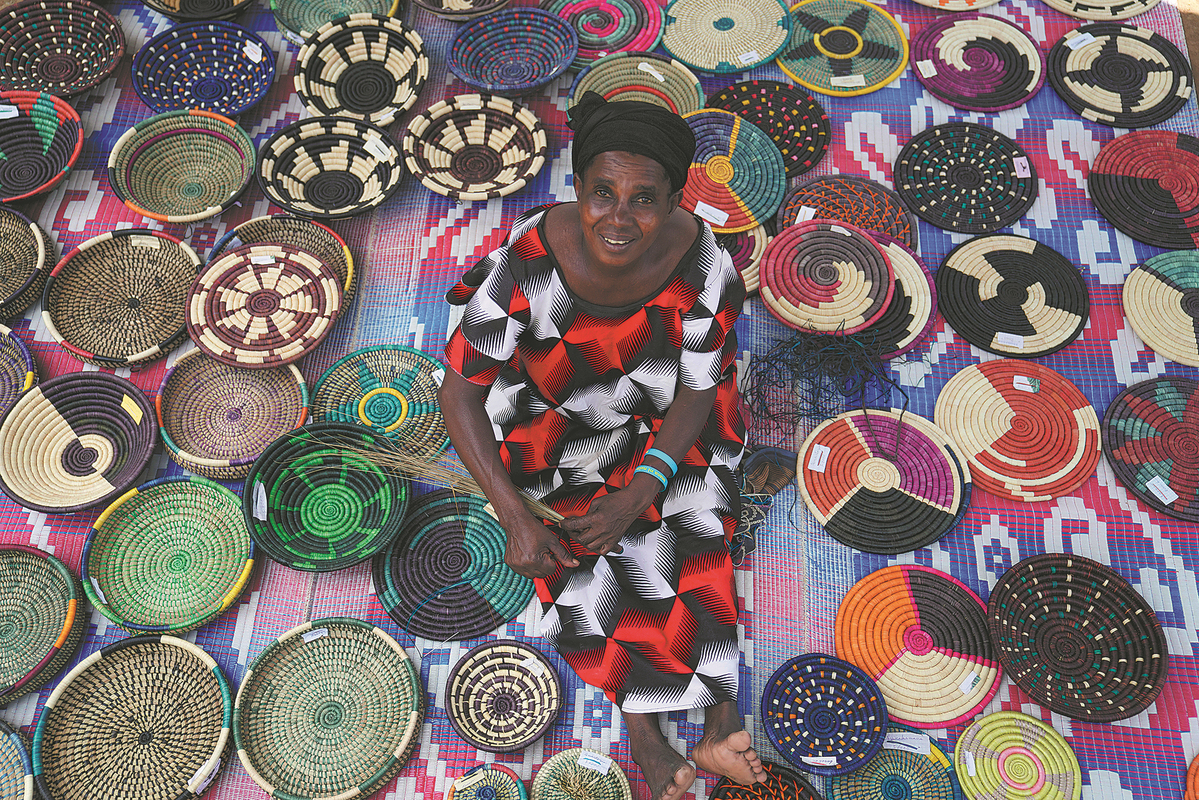As ethnic distrust melts, pair embrace like sisters
Rwanda commemorates 30 years since genocide claimed about 800,000 lives
Updated: 2024-04-08 07:11

BUGESERA/KIGALI, Rwanda — Anastasie Nyirabashyitsi and Jeanette Mukabyagaju think of each other as dear friends.
The women's friendship was cemented one day in 2007 when Mukabyagaju left her child in Nyirabashyitsi's care.
This expression of trust stunned Nyirabashyitsi because Mukabyagaju, a Tutsi survivor who lost most of her family in the Rwandan genocide in 1994, was leaving a child in the hands of a Hutu woman for the first time since they had known each other.
"If she can ask me to keep her child, it's because she trusts me," Nyirabashyitsi said, describing her feelings at the time. "A woman, when it comes to her children, when someone trusts you with (her) children, it's because she really does."
They were both witnesses to terrible crimes 30 years ago. The killing rampage, which lasted 100 days before the Rwandan Patriotic Front rebel militia took the capital Kigali in July 1994, claimed the lives of about 800,000 people, largely Tutsis but also moderate Hutus.
In keeping with tradition, April 7, the day Hutu militias unleashed the carnage in 1994, began with President Paul Kagame placing wreathes on mass graves and lighting a remembrance flame at the Kigali Genocide Memorial, where more than 250,000 victims are believed to be buried.
At a solemn ceremony, Kagame addressed an audience that included several African leaders and former United States president Bill Clinton, who had called the genocide the biggest failure of his administration.
The United Nations and the African Union also held remembrance ceremonies. The AU said this year signifies "a significant moment to honor the deceased, stand in solidarity with survivors and join together to prevent such atrocities from occurring ever again".
Sunday's events also marked the start of a week of national mourning.
In the government-approved reconciliation village where Nyirabashyitsi and Mukabyagaju have lived for 19 years, they have reached peaceful coexistence from opposite experiences.
As for Mukabyagaju, she was a 16-year-old temporarily staying in the southern province of Muhanga while her parents lived in Kigali. When she could not shelter at the nearest parish she hid in a latrine for two months, without anything to eat and drinking from trenches until she was rescued.
"I hated Hutu so much to the point that I could not agree to meet them," she said, adding that it took a long time "to be able to even think that I can interact with a Hutu".
The women are neighbors in a community of genocide perpetrators and survivors 40 kilometers outside Kigali. At least 382 people live in Mbyo Reconciliation Village, which some Rwandans cite as an example of how people can peacefully coexist 30 years after the genocide.
More than half the residents of this reconciliation village are women, and their projects, including a basket-weaving cooperative and a money saving program, have united so many of them that it can seem offensive to ask who is Hutu and who is Tutsi.
An official with Prison Fellowship Rwanda, a civic group in Kigali that is in charge of the village, said the women foster a climate of tolerance because of the hands-on activities in which they engage regularly.
"There's a model ... which we call practical reconciliation," said Christian Bizimana, a program coordinator with Prison Fellowship Rwanda. "Whenever they are weaving baskets they can engage more, talk more, go into the details. We believe that by doing that... forgiveness is deepened, unity is deepened."
In Rwanda, with a population of 14 million, women leaders have long been seen as a pillar of reconciliation, and Rwandans can now "see the benefits" of empowering women to fight the ideology behind genocide, said Yolande Mukagasana, a prominent writer and genocide survivor.
Rwandan authorities have heavily promoted national unity among the majority Hutu and the minority Tutsi and Twa, with a government ministry dedicated to reconciliation efforts.
Rwandan ID cards no longer identify a person by ethnicity. Lessons about the genocide are part of the curriculum in schools.
Mukabyagaju insisted that she now relates to Nyirabashyitsi and the other women in their village as if they were her sisters. For her, she said, the ethnic labels are meaningless.
"I don't see them as Hutu," she said.
Agencies-Xinhua
























